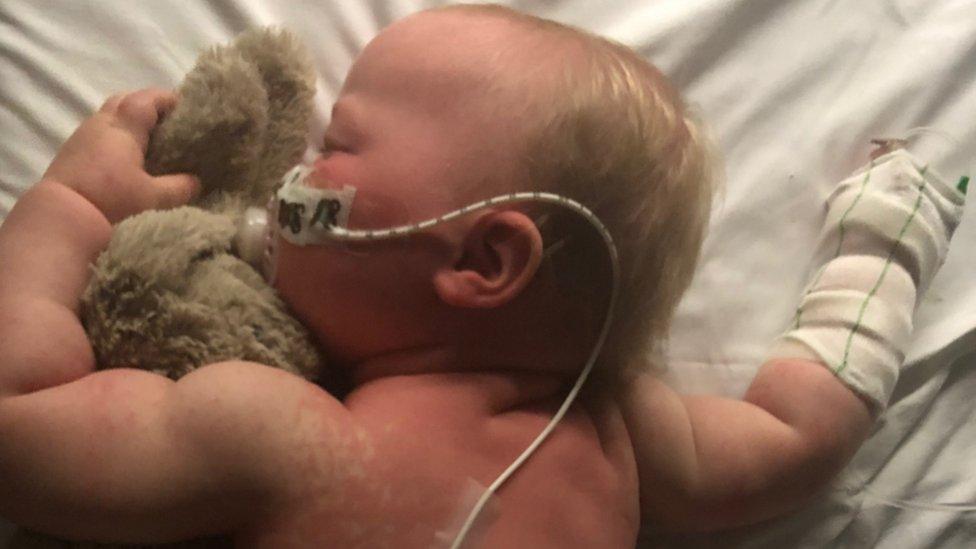Measles: Experts call for compulsory vaccination
- Published
- comments

Compulsory measles vaccinations for all children starting primary school may be needed to prevent a resurgence of the disease, experts say.
Italian researchers believe the current voluntary programmes in countries like the UK will not be enough to curb outbreaks in the coming decades.
They said vaccination rates had fallen because of misleading campaigns claiming vaccinations are dangerous.
But others questioned whether compulsory vaccinations would help.
The researchers from the Bruno Kessler Foundation and Bocconi University raised concern about vaccination rates in a number of countries, including the US, Ireland and Australia, as well as in the UK.
They have used computer modelling to predict how many measles cases could occur, the journal BMC Medicine reported.
It found that the number of cases in the UK could double in the coming decades, leading the researchers to call for compulsory vaccinations as has happened in Italy, where children need to be vaccinated to start primary school.
In England, the proportion of children receiving both doses of the measles, mumps and rubella (MMR) jab by their fifth birthday has fallen over the last four years to 87.2%.
This is below the 95% said by the World Health Organization to be the level necessary to protect a population from a disease.
The UK was declared free of the highly contagious measles disease for the first time by the WHO in 2017.
But in 2018, it experienced small outbreaks, and in March this year there was a sharp increase of cases across Greater Manchester.
The BBC investigated in 2018 why there's been a measles outbreak in Europe
Lead researcher Dr Stefano Merler said that the UK and other countries would "strongly benefit" from compulsory vaccinations as it would help them reach herd immunity.
But Prof Adam Finn, of the University of Bristol, said there was no proof of this.
"Mandatory immunisation is certainly one way to try and increase coverage but it's far from clear how well it works or whether it would work at all in many places.
"If the reasons that the vaccine is not getting into the children relate to easy access, vaccine supply or clarity of information available to parents, then making it compulsory will do nothing to alleviate such obstacles.
"If there is widespread mistrust of authority or of the motivation behind any such requirements, it could actually make things worse."
Earlier this year, Health Secretary Matt Hancock said that he was willing to look at "all options" to boost England's vaccination levels, including compulsory immunisation.
Mr Hancock said he did not want to "reach the point" of imposing jabs, but would "rule nothing out".
In March, the head of NHS England warned "vaccination deniers" were gaining traction on social media.
- Published4 May 2019

- Published25 April 2019

- Published5 April 2019
